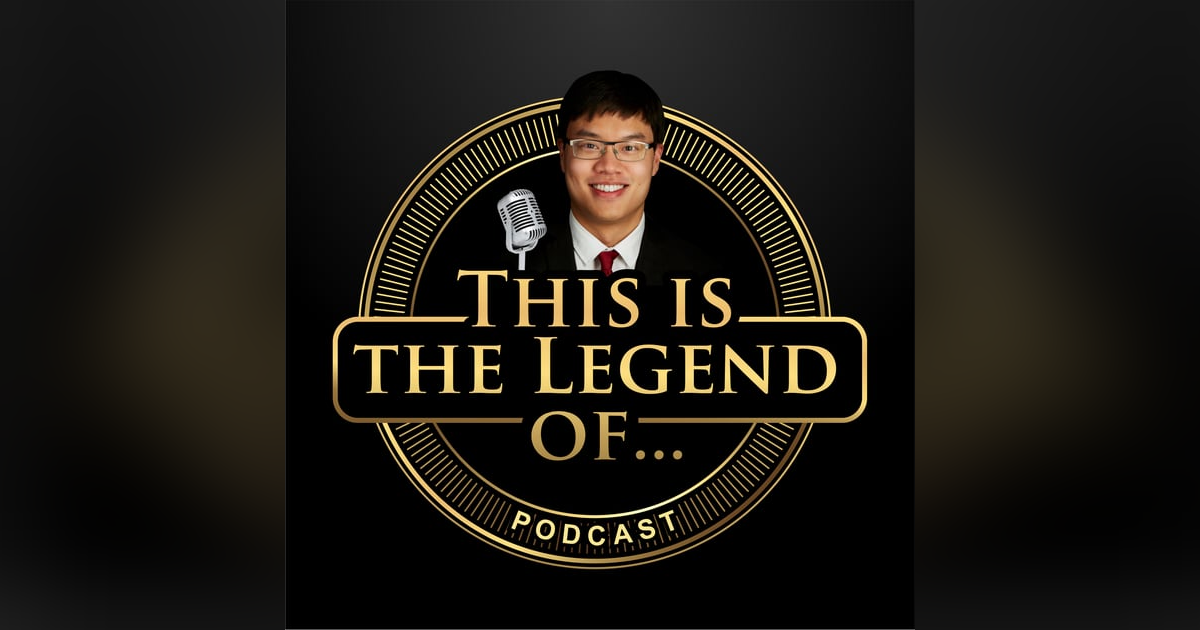HE SHOWED HIS BRAIN ON MUSIC | Ep. 24 - This is the Legend Of Nicolas Namoradze

The finest instrument is the mind. He showed exactly why, by recording his own brain on music!
Meet Nicolas Namoradze (known as “Nico” to friends and colleagues), a pianist, award-winning neuroscientist, and 1st prize winner of the 2018 Honens International Piano Competition.
In this episode of This is the Legend Of…, Amos features Nicolas’s unique career, pathway to Honens, and fascinating research after Honens. His most recent research, the “Neurorecital”, records the neural activity of a musician’s brain while the musician is performing music. Spoiler alert: especially in classical piano, the pianist’s brain reacts DIFFERENTLY when the pianist performs different repertoire of different composers!
Nicolas just debuted the “Neurorecital” at the world-renowned Verbier Festival in Switzerland, and by using the University of California – San Francisco’s revolutionary “Glass Brain” technology, Nicolas has broken new ground into musical performance’s musical, neurological, and psychological effects on both the performer and the audience!
Looking forward to featuring more of Nicolas’s research findings in the future as his research continues to develop.
You can follow him on Instagram: @nicolasnamoradze
Nicolas’s website – https://nicolasnamoradze.com/
Tomorrow by Scott Buckley – released under CC-BY 4.0. www.scottbuckley.com.au
Other music composed by: Amos Vang
-- CHAPTERS --
0:00 – Introduction
4:16 – What inspired Nicolas Namoradze to pursue piano?
6:58 – What is the music culture like in Tbilisi and Budapest?
11:01 – North America has growing centres of rich piano culture.
11:25 – Nicolas Namoradze made his solo debut at 10 years old and his orchestral debut at 12 years old!
12:49 – How have the music cultures of Budapest, Vienna, and Florence shaped Nicolas Namoradze’s musical style and philosophy?
16:27 – It is important to consider both musical AND non-musical influences on a composer’s style! For example: Chopin, Bartok, and Schubert!
20:48 – Chinese music has A LOT of rich cultural references! Amos Vang explains the Cantonese and Mandarin linguistic influences on music!
24:04 – There are parallels between musicianship and acting! Tony Leung Chiu-wai is a great example of that.
27:37 – Nicolas Namoradze brings a scientific perspective into piano performance!
28:44 – Music teachers would benefit greatly from understanding the scientific perspectives behind piano performance.
35:47 – Bruce Lee’s Jeet Kune Do can be applied into musical performance: absorb what is useful, discard what is not, add what is uniquely your own!
36:55 – Is there a kinesiological explanation for good arm movement in piano performance?
42:23 – Michael Phelps spent more time on mental practice than on swimming! Could musicians learn from that?
43:48 – Sports athletes hype themselves to an extremely high level, in order to compete. Should musicians learn from this?
51:34 – What inspired Nicolas Namoradze to compete in Honens?
57:48 – Honens has a unique scoring system for their judging of the best pianists.
1:02:29 – Music does NOT operate in a vacuum. There must be dialogue and adaptation.
1:05:41 – Justice Rosalie Abella, a former judge of the Supreme Court of Canada, was a performing pianist. Amos Vang explains how her musical training influenced her legal writing.
1:14:52 – Music and law have one thing in common: their students learn about THEORY and THEME!
1:15:10 – Justice Rosalie Abella actually read Amos Vang’s final law school paper about her!
1:15:47 – What is musicality to Nicolas Namoradze?
1:19:32 – Can there be objectivity/universality in beauty (and by extension, in musicality)?
1:24:28 – What is the Neurorecital? What are the most important research findings that Nicolas Namoradze has found in the Neurorecital?
1:28:16 – How has the Neurorecital’s scientific results affected Nicolas Namoradze’s piano performance? How can the Neurorecital contribute to our current knowledge of effective musical performance?
1:30:31 – Amos Vang describes his own experience with observing musical therapy in senior patients with dementia.
1:34:52 – The gradual decrease of music education in Canada’s public education systems
1:40:01 – Look at the brain on music! There are NO BAD SIDE EFFECTS!
1:40:55 – What is the Complete Artist to Nicolas Namoradze?
1:42:36 – How do new audience members watch and enjoy music competitions such as Honens?
1:45:48 – What are the most rewarding aspects of Nicolas Namoradze’s career? What advice does he pass on to those who want to pursue a music career?





